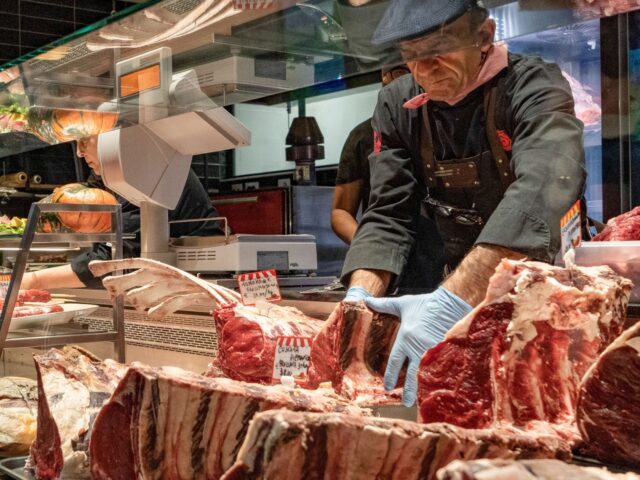Italy officially banned lab-grown meat this week in a bid to protect the nation’s farmers and food heritage from the Great Reset-style push towards synthetic foods.
Voting by a measure of 159 to 53, the Italian parliament voted to prohibit the sale of lab-grown meat for food or animal feed that was “produced from cell or tissue cultures deriving from vertebrate animals”.
The legislation also prohibits plant-based protein substitutes from using meat-related terms on their packaging or marketing, thereby outlawing the use of phrases like veggie “hamburger” or soy “meatballs”, the Il Sole 24 Ore newspaper reported.
Fines ranging from 10,000 to 60,000 euros, or 10 per cent of annual turnover with a maximum of 150,000 euros, will be imposed on those who violate the ban on selling lab-grown meat.
Agriculture Minister Francesco Lollobrigida, a member of Prime Minister Giorgia Meloni’s conservative Brothers of Italy party, said in comments reported by the BBC: “We are safeguarding our food, our system of nutrition, by maintaining the relationship between food, land and human labour that we have enjoyed for millennia.”
“We have to protect our workers, our agricultural entrepreneurs and citizens who have the right to eat well,” he added.
The legislation was spurred by a petition earlier this year which received over half a million signatures demanding a ban on synthetic meat.
COP27 Hypocrisy: Globalists Munch Down on Meat as They Push Bug Diet for the ‘Proles’https://t.co/cdXsZuurkj
— Breitbart London (@BreitbartLondon) November 9, 2022
The move has drawn pushback from animal rights groups in Italy, which argue that lab-grown meat is more ethical than the slaughter of animals. Vegetable producers have also objected to the ban on labelling plant-based proteins as “meat”, given that it may depress sales of vegetarian options.
Although the European Union has yet to approve lab-grown meat for human consumption, the Italian legislation could potentially set up a battle between Rome and Brussels in the future should Eurocrats back the introduction of such products, which is not outside of the realms of possibility given that the EU has stated that shifting away from meat is part of its green agenda.
The movement against meat has become a cause de jour among globalist elites, including the controversial Davos-based World Economic Forum (WEF), which has advocated for the widespread adoption of supposedly “climate beneficial foods” such as algae, cacti, and seaweed.
The Klaus Schwab-run institution has also called for the increased use of bug-based protein sources, arguing that adopting the eating of insects would be more sustainable than meat.
At the annual WEF summit in the Swiss ski resort, Siemens chairman Jim Hagemann Snabe called for a dramatic global reduction in meat consumption to combat the so-called climate crisis.
“If a billion people stop eating meat, I tell you, it has a big impact. Not only does it have a big impact on the current food system, but it will also inspire innovation of food systems,” the Siemens boss claimed, adding: “I predict we will have proteins not coming from meat in the future, they will probably taste even better.”
EU Endorses Beetle Larvae for Human Consumption, Touts ‘Environmental Benefits’ https://t.co/dGbniSDd0v
— Breitbart London (@BreitbartLondon) May 6, 2021

COMMENTS
Please let us know if you're having issues with commenting.